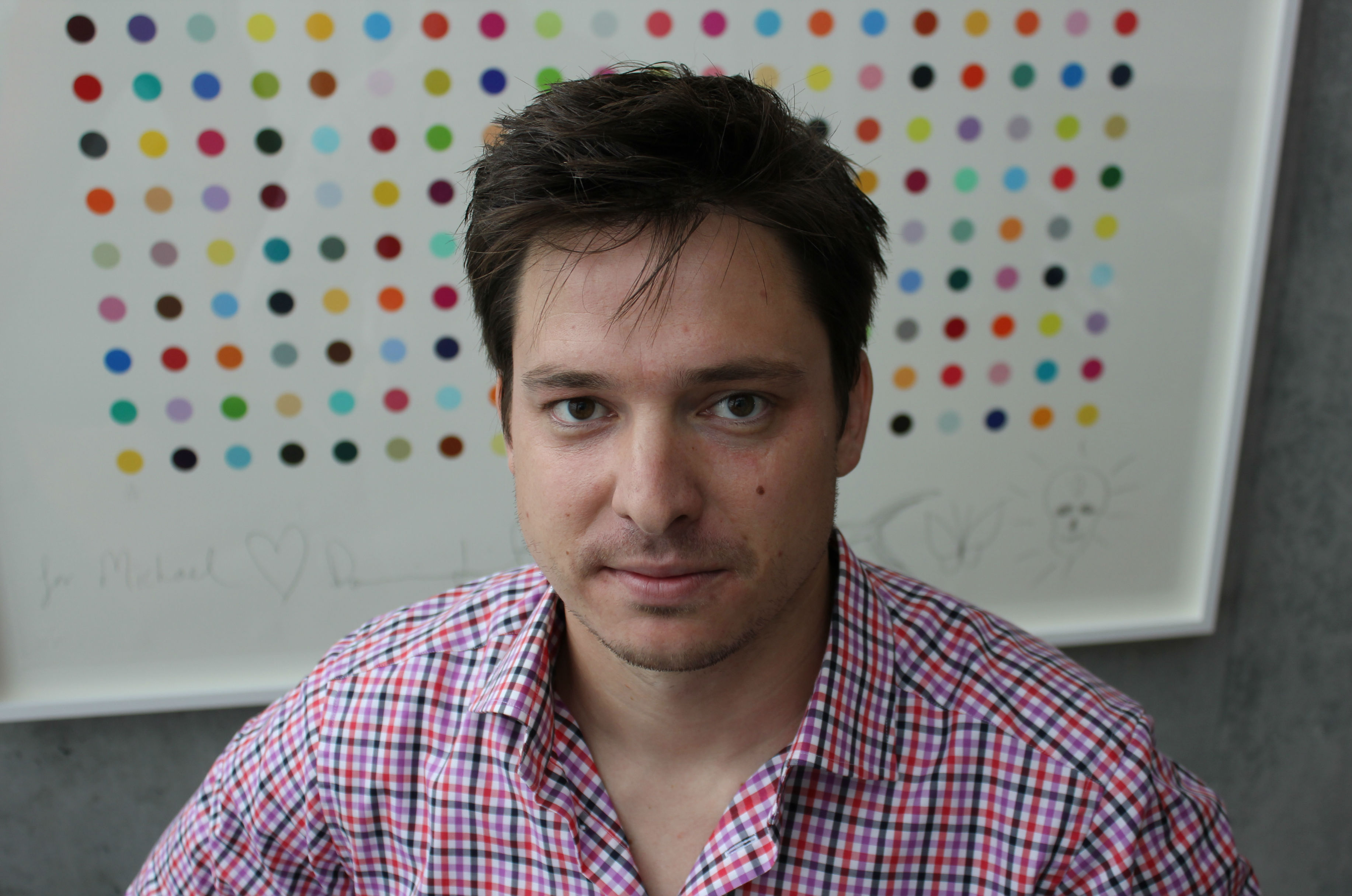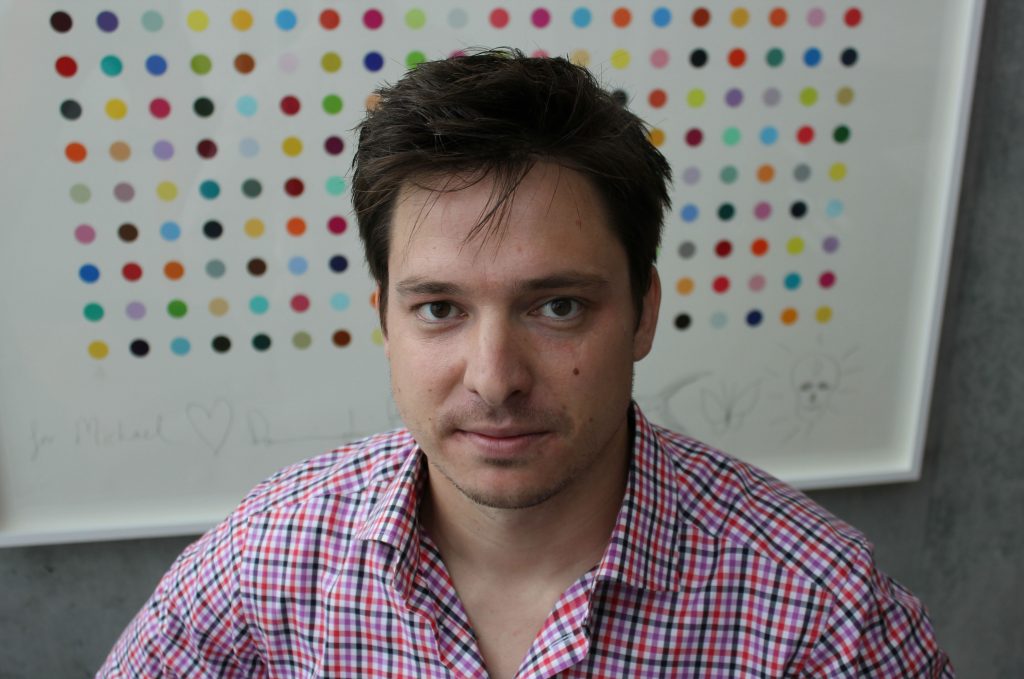
“If you play by the rules, you can do business in Ukraine.”
Jason Mitura is an all-American guy who grew up in Dallas, Texas, but made his first fortune in Ukraine.
His success is all the more noteworthy given that he speaks little Ukrainian. On a tip, he flew to Kyiv for the first time in 2008 and found a huge opportunity.
Over four years, he and his team built and then sold a company called Viewdle to Google for a reported $45 million in 2012. The company’s software allows smartphone manufacturers to embed facial-recognition technology into their handsets.
“It was the largest US venture-backed exit ever in Ukraine up to that time,” he said.
Since then, Snapchat bought Ukrainian facial modification startup, Looksery, for a reported $150 million in 2015.
Mitura loves doing business in Ukraine.
“I’m still in Ukraine frequently and have made some local investments and helped other companies set up there from the United States,” he said.
Jason is a remarkable risk-taker which is why he didn’t hesitate to wade into a foreign country with a notoriously bureaucratic and corrupt government, and where few trails had been blazed.
“It started as a university project at Kyiv Polytechnic University (KPI) and there isn’t really local money to fund such projects,” he said. “So it took a Ukrainian-American guy living in Brooklyn, named Yuri Frayman, to get the project going.”
When the project started, KPI had the intellectual property (IP). “They were interested and wanted to license it to us but had no model or forms for this. So there was a lot of paperwork.”
This was an important lesson, he recalled. The paperwork was worth the trouble because, without detailed contractual agreements, his financing efforts and the eventual acquisition process would have been impossible.
Other challenges included the fact that IP laws in Ukraine are not the same as western laws.
“Whatever local market you’re working in, secure your IP in the same way you would in the United States, so American investors can understand it,” he added.
The business also had to operate in a western fashion.
“You cannot run a gray market company where you make cash and pay people in cash because when you need institutional capital they won’t look at you. You must run the company properly with auditable practices or they will walk away,” he said.
Most of Viewdle’s employees were relocated to California when the company was sold.
Jason has commuted regularly to Ukraine since 2008, but his head office remains stateside, an important structural component to building businesses there.
“I operated through a US-based company with a representative office in Kyiv, which is the most efficient way to take investment funds,” he said.
In addition, Jason said his Ukrainian employees were paid very good salaries, as opposed to dramatically lower local wages.
“We built a core who would not leave and everybody got [stock] options from the secretary to the interns,” he said.
The biggest barrier to investors was political risk. But Jason said he overcame that issue by urging interested parties to come to Ukraine and see for themselves how safe and efficient its IT sector is.
“The geography is unfamiliar,” he said. “One British venture capitalist said Kyiv is too far away for us to invest in—Britain is only three hours away by plane—but then there was a guy in LA who said ‘let’s get on a plane and have a look at this.’”
Viewdle raised capital from seven entities and each one came to see operations and the culture for themselves then wrote checks.
“We raised our first capital from a traditional group of angels in the beginning, then venture capital partners and it went on from there,” he said.
Jason remains a big fan of Ukraine.
“The macro story of stability/instability in Ukraine can’t be controlled, but needs to be front loaded and explained to investors. It’s the first thing anyone asks when they hear about Ukraine. Israel has managed this and I think Ukraine can, too. The history of ups and downs can’t be changed, but there’s a history of stability and excellence in the tech sector,” he said.
“If you play by the rules, you can do business in Ukraine. The IT sector needs to have pride in what it’s doing and speak forcefully about it. That will be the key to continue building what is a core competency of the country,” he said.
Ukraine has become one of the world’s foremost tech outsourcing destinations, but local startups are growing in number and quality because of the country’s education and talent.
Ukraine’s foundation in math and sciences is fantastic and the cultural affinity makes it easy for westerners to work and invest there.
“I cannot say how impressed all our investors and eventual acquirers were when they met our team,” he said. “Many of the guys on that team are still in California and doing extremely well.”
He ended his introductory email to me with “Go Ukraine,” which says it all.
Diane Francis is a Senior Fellow at the Atlantic Council’s Dinu Patriciu Eurasia Center, Editor at Large with the National Post in Canada, a Distinguished Professor at Ryerson University’s Ted Rogers School of Management, and author of ten books.
Image: Jason Mitura served as CEO of Viewdle, a technology company with roots in Ukraine, until its 2012 acquisition by Google.
